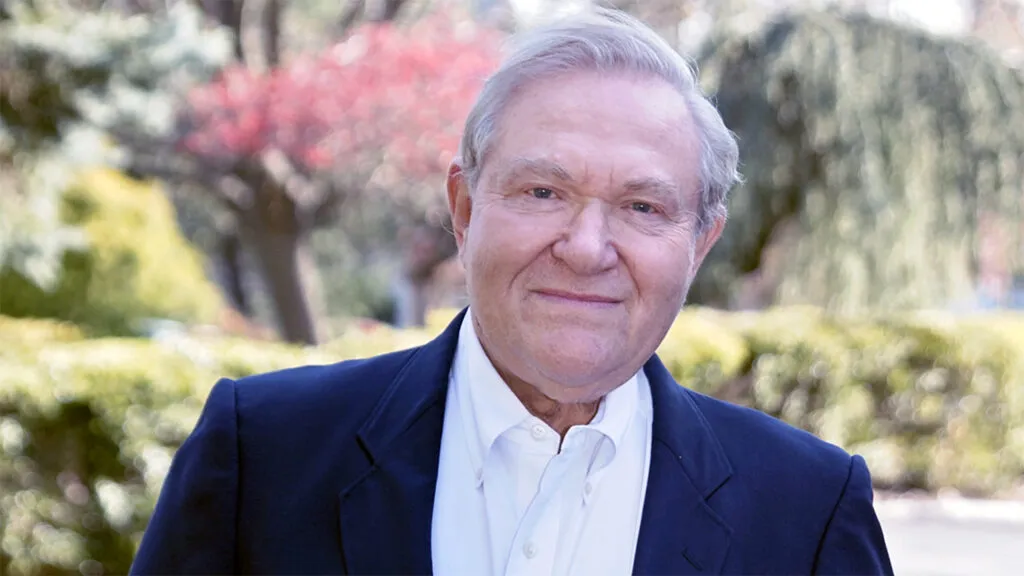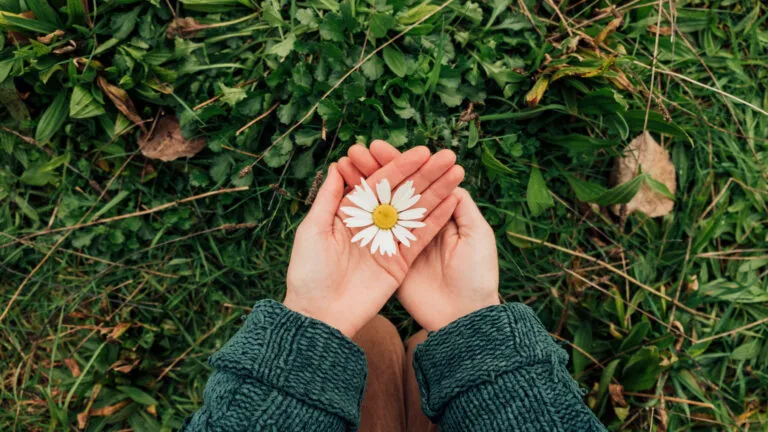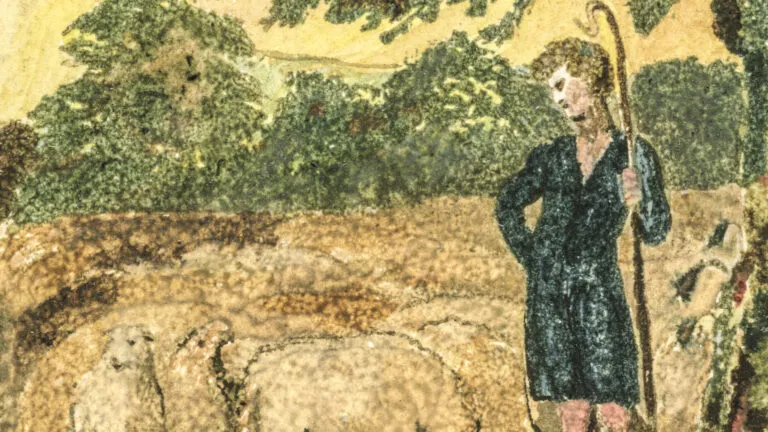Michael Bornstein was born in Żarki, Poland into the chaos of WWII. At just four years old, he was sent—along with his entire family—to Auschwitz, the notorious Nazi death camp in Poland.
Thirty-four hundred Jews lived and worked in Michael’s hometown before the war. Less than 30 returned, almost all of them Michael’s family members—an incredible story that Michael documented in his stirring memoir, Survivors Club, cowritten with his daughter Debbie. In it, Michael details the horrors of his experience during the Holocaust, but also the many miracles he witnessed as one of the tragedy’s youngest survivors.
Below is an edited and condensed excerpt from Survivors Club about one such miracle—the survival of a small, silver Kiddush cup that ended up becoming a symbol of hope, faith and perseverance for Michael in the aftermath of one of the darkest events of human history.
–Hilary Ribons
Something to Return For
It was October 1939, and German soldiers were coming to my family’s red-brick house on Sosnawa Street in Żarki, Poland. It was the day the soldiers began taking “contributions,” and Papa was determined to protect what we had.
“If you’re so set on doing this, at least remember the cup!” Mamishu called softly, her eyes still trained through the living room window on the armed German soldiers taking valuables from their neighbors’ homes.
“I’ve already got it,” Papa said, ducking out into the backyard as soldiers’ voices grew louder and louder.
From the back door, he counted his steps. He stopped at a soft spot in the soil and dug with his hands, like he was gardening. I guess you could say my father was planting, burying our family’s seeds of hope.
Within a minute, a hidden cavity appeared. He dropped in the sack of all our valuables—including one small, unadorned silver cup, called a Kiddush cup, which is used on the Sabbath. That’s a holy day celebrated every week in Jewish homes from sundown Friday to sundown Saturday. It’s marked by prayer, wine, and song. Shabbat is intended to be a time of rest and the most peaceful day of the week. The Kiddush cup is raised in gratitude.
Back inside, two Nazi soldiers burst through the front door. My mother prayed that my father would return. He materialized in the living room door just in time, his expression giving no hint of panic. His hands, soiled from digging in the dirt, were now just as clean and unsuspicious as his expression. Papa had gotten the job done.
After the War
In the spring of 1945, Mamishu raced back to her old house. It didn’t even look like her house anymore. It had been taken over by a Polish woman after our family was sent away. Her heart was racing, but she had no intention of turning around until she found what she had come for. When her husband first buried the family’s stash of money and jewels, it had been pretty easy to spot its location, if you knew where to look. Five years later, with Papa gone, Mamishu had to rely on rough measurements.
Did Israel say thirteen steps, or was it fourteen?
Mamishu was second-guessing herself. She paced out her steps several times before finally dropping to her knees to dig. She dug into the earth with just her hands.
My mother knew that Papa had left enough zlotys in the bag to get set up in a new city. Surely the valuables in the sack would net a nice amount of money for my schooling and some proper clothes.
She kept digging, and eventually wrestled the bag free from the ground.
Why does the bag feel so light?
Mamishu’s face flushed. She knew without opening the bag that she had been robbed again. Her safety net was gone, along with every last physical memory of her old life with my papa. Her heart felt utterly broken. She was about to toss the sack to the ground and leave, defeated, when she noticed something. There was still some small weight inside the bag. She reached into the bottom of the sack and grabbed something cool and curved. She pulled out our family’s silver Kiddush cup.
To Mamishu, this was the greatest treasure of all. Hitler’s army had killed millions of Jews, but it was abundantly clear on that night: you can’t destroy faith.
With memories of Shabbat dinners and laughter swirling in her mind, Mamishu returned the cup to the bag and clutched it to her heart as she started back to the side of house with a victorious smile on her face. The money could be replaced. The family Kiddush cup, though, was irreplaceable.
New Beginnings in New York
It was May of 1953, and Mamishu was late to my bar mitzvah.
I knew she’d be along soon, but the rabbi told me we couldn’t wait any longer—services had to begin. Just as I stepped onto the bimah—the holy stage—the big wooden doors at the back of the room swung open and my mother came racing to the front row.
“Antshuldigt!” she mouthed to me in Yiddish. Sorry! She was wearing a bright honey-colored dress and all her best jewelry. She blew a kiss at me from her seat. I couldn’t stay mad at her.
During my bar mitzvah ceremony, the rabbi raised a tiny silver Kiddush cup I had brought to the temple with me that morning. He loudly chanted the prayer over the wine. The cup had one small ding on its side, but to every family member in the crowd it looked perfect.
Not Just Surviving, But Thriving
I’m a grandfather now. I recently retired from a long career in pharmaceutical research. My wife and I share days filled with grandchildren’s soccer games and family birthday parties—and an unyielding supply of indescribable joy.
Two generations after the Holocaust, from one survivor, there are four children and 12 grandchildren. There are hundreds of thousands more from other survivors and escapees. Today, our sense of identity is stronger than ever.
At our children’s weddings and for our grandbabies’ bris or baby naming, we have raised one very precious silver Kiddush cup in gratitude and celebration. That family heirloom, once buried in my parents’ backyard in Żarki, now stands as a symbol of a faith that can’t be broken, no matter how great the test.
Edited and condensed from Survivors Club: The True Story of a Very Young Prisoner of Auschwitz. Copyright 2017 by Michael Bornstein. Copyright 2017 by Debbie Bornstein Holinstat. Adapted by permission of Farrar, Straus, Giroux Books for Young Readers. All Rights Reserved.
Read Michael’s inspiring story from the April-May 2018 issue of Mysterious Ways magazine.





